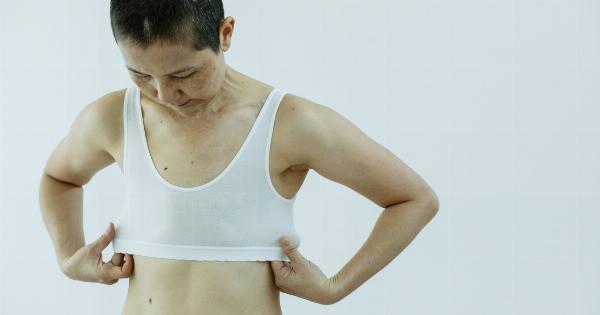Sleep is a vital component of good health, but what if your sleepwear is doing more harm than good? Experts suggest that the clothing you wear to bed can have a significant impact on your quality of sleep and your overall health.
Let’s take a closer look at some of the ways your sleepwear could be affecting your health.
1. Overheating
One of the most common problems associated with sleepwear is overheating. If your pajamas are too thick or made from materials that trap heat, you may find yourself waking up in the middle of the night drenched in sweat.
This can disrupt your sleep and leave you feeling tired and irritable the next day.
2. Skin irritation
The quality of the fabric in your sleepwear can also affect your skin. Synthetic materials like polyester or nylon may cause irritation, particularly if you have sensitive skin.
Even natural materials like silk or wool can be irritating if they’re not processed properly. Look for breathable, hypoallergenic fabrics like cotton or bamboo to avoid skin irritation.
3. Allergic reactions
In addition to skin irritation, sleepwear made with synthetic materials may also cause allergic reactions.
These materials release microscopic fibers that can be inhaled or come into contact with your skin, causing allergic reactions like sneezing, itching, or hives. Natural fibers are less likely to cause allergic reactions.
4. Bacteria growth
Moisture from sweat and oils from your skin can accumulate in your sleepwear, creating an environment where bacteria can thrive. Over time, this bacteria can cause unpleasant smells and even infections.
It’s important to wash your sleepwear regularly and choose materials that are absorbent and moisture-wicking, like cotton or bamboo.
5. Restless sleep
The wrong type of sleepwear can also disrupt your sleep. Tight-fitting or restrictive clothing can cause discomfort and make it harder to fall asleep.
Similarly, clothing that is too loose or moves around while you sleep can cause you to wake up frequently during the night. Look for sleepwear that is comfortable and fits well to ensure a restful night’s sleep.
6. Breathing difficulties
Sleepwear can also impact your breathing, particularly if it is too tight around your chest or abdomen. This can make it harder to take deep breaths and lead to shallow breathing or even snoring.
Choose sleepwear that is loose and comfortable, particularly around your chest and abdomen, to promote healthy breathing patterns while you sleep.
7. Blood flow restriction
If your sleepwear is too tight, it can also restrict blood flow, particularly to your extremities like your arms and legs. This can lead to numbness or tingling and may even cause poor circulation over time.
Opt for loose, comfortable sleepwear to avoid blood flow restriction.
8. Reproductive health concerns
For women, tight-fitting sleepwear can also impact reproductive health. Wearing tight clothing around the pelvic area can raise temperatures, which may negatively affect fertility.
It’s important to choose sleepwear that is loose and allows air to circulate freely around this area to maintain healthy reproductive function.
9. Psychological effects
Finally, it’s worth noting that your sleepwear can also impact your mood and psychological state. Wearing pajamas that you find uncomfortable or unflattering can make you feel self-conscious or irritable.
Similarly, wearing sleepwear that feels luxurious or comfortable can have a positive effect on your mood and promote a more restful night’s sleep.
The bottom line
Your choice of sleepwear can have a significant impact on your health and well-being. By selecting loose, comfortable, and breathable fabrics, you can promote a good night’s sleep and avoid potential health problems.






























